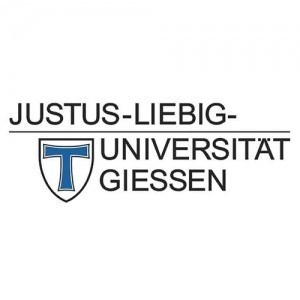Photos of university / #uni_bremen
Advertisement
The Master of Ecology at the University of Bremen is a new programme (starting in 2008) for European and Non-European students with a background in biology, ecology or a related subject. All courses are offered in English. The Master of Ecology is multidisciplinary and contains many innovative elements such as a mentoring programme, integrated skills courses, supporting online material, scientific projects, and individual research training.
Subsequent non-teaching occupational fields
The Master of Ecology will provide you with a broad ecological background and will train you to become a critically thinking scientist. Not only will you get extensive research experience qualifying you for PhD studies and an academic career. The acquired scientific, technical and communication skills also open a wide array of additional opportunities. During the programme, you will become familiar with many techniques and approaches including field experiments, analysis of animal behaviour, mathematical modelling, sustainability research, advanced statistics and modern genetic methods.
Possibilities for additional qualifications
The graduation enables / authorizes you to take on (promotion) studies for a doctorate.
The programme consists of 4 semesters (two years) including M.Sc.-thesis. Specialisation is offered with individual choice of courses, i.e. in Molecular, Behavioural, Population, Vegetation, Field, Cognitive, Marine or Soil Ecology, as well as Conservation Biology, Risk Assessment, or Ecological Modelling. Especially during the 3rd term, students have the possibility to study at one of our partner universities abroad.
Area foci/ modules for advanced specialisatio
Compulsory area (84 CP):
* Module 401: Concepts of Ecology (3 CP)
* Module 402: Experimental Design and Data Analysis (12 CP)
* Module 403: Earth Sciences (6 CP)
* Module 404: Molecular Ecology (9 CP)
* Module 405: Current Topics in Ecology 1 and Mentoring (3 CP)
* Module 411: Population Ecology (9 CP)
* Module 412: Research Project (12 CP)
* Module 510: Masterarbeit und Kolloquium (30 CP)
Compulsory optional area (36 CP):
* Module 406: Introduction to Behavioural Ecology (3 CP)
* Module 407: Biodiversity (3 CP)
* Module 408: Environmental Risks and Ecotoxicology (3 CP)
* Module 409: Marine Macroalgae and Associated Animals (3 CP)
* Module 413: Behavioural Ecology (6 CP)
* Module 414: Ecological Excursion and Field Course (6 CP)
* Module 415: Applied Ecology and Conservation Biology (6 CP)
* Module 416: Soil and Vegetation Ecology (6 CP)
* Module 501: Sustainability Research (6 CP)
* Module 502: Grant Proposal and Defence (6 CP)
* Module 503: Ecophysiology (6 CP)
* Module 504: Spatial Analysis and GIS (6 CP)
* Module 505: Current Topics in Ecology 2 (3 CP)
* Module 506: Introduction to Ecological Modelling (3 CP)
* Module 507: Microbiology of Terrestrial Ecosystems (6 CP)
* Module 508: Coral Reef Ecology of the Red Sea (6 CP)
Semester abroad
Recommended in the 3rd term









